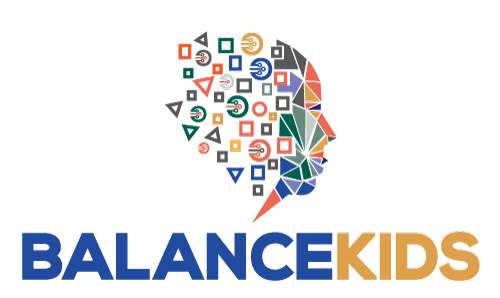According to an American Academy of Pediatrics report, data shows that children are more likely to have mental health disorders than physical ailments. Still, most children never receive the necessary care due to stigma, cost, and mental health specialists (AAP) shortage. Although pediatricians are often the first providers to notice mental health issues in children, many say they are unprepared to address these concerns, according to the report.
According to studies, many pediatricians and trainees believe they are unprepared to prevent, identify, or treat behavioral and mental health issues. Nonetheless, far too many children, adolescents, and young adults are struggling with these issues today, and the prevalence of diagnoses is rising.
Daily, pediatricians are more likely than ever to encounter patients with mental health issues. There is a need for investment in proven treatments for children with mental health disorders, such as psychology-based interventions.
Pediatricians are more likely than ever to see patients with mental health issues on a daily basis because mental health issues have surpassed physical problems as the top five disabilities affecting children. Waddell et al. estimated that one in every seven children in Canada has a mental health problem that impairs function and causes significant symptoms. As a result, there is a greater emphasis on addressing mental health issues in children.
There’s no denying that many pediatricians and other primary care clinicians are providing increasing mental health care these days. However, many questions remain. Do these doctors desire these new responsibilities? Should pediatricians be involved in mental health care? What about the remaining clinicians who refuse to participate?
The American Academy of Pediatrics (AAP) recently published a policy statement titled “Mental Health Competencies for Pediatric Practice” that makes it abundantly clear diagnosing and treating many typical childhood behavioral disorders (such as ADHD or anxiety) should be part of what pediatricians do, including the prescription of certain medications.
This shift toward more mental health care is likely due to various factors, not the least of which is a recognition that there aren’t enough psychiatrists and other mental health specialists to care for every youth with a diagnosable psychiatric disorder. As the supply of mental health professionals remains flat, the demand is growing due to rising rates of youth suicide and a rise in the number of children and teenagers presenting to emergency departments in crisis — for reasons that are still unknown. And all of this is happening when research demonstrates — more clearly than ever — that good mental health is the foundation of overall health.
The response from the pediatric community has primarily been to rise to the occasion and take on all these new challenges and responsibilities as best they can. While doing this, they also try to keep up with the latest information about mental health best practices, whether due to personal conviction or simply a lack of options. However, while many pediatricians now fully support the notion that mental health issues should be considered in their “lane,” the sentiment is far from universal. Some people believe that all mental health problems necessitate a referral, even though most orthopedic problems, infections, asthma, rashes, and other medical issues can be treated without referring the patient to a specialist.
Others are eager to contribute to mental health care but are concerned that they have been pushed into waters that are too deep or too turbulent for their level of training. They may argue that diagnosing and treating ADHD is one thing, but being asked to take over the care of an adolescent with bipolar disorder who has just been discharged from a psychiatric hospital is not in anyone’s best interests.
Of course, where someone’s comfort level ends will differ from clinician to clinician based on that pediatrician’s level of interest, experience, and community resources. The AAP does not require or even encourage all pediatricians to be at the same level of competence when assessing and treating mental health problems. However, it is probably fair to say there is a move to elevate the collective bar at least a notch.
As a result, the mental health community has taken steps to assist primary care clinicians in their expanded role. These efforts have taken many forms, most notably the integrated care model, in which various mental health clinicians see patients in primary care offices rather than forcing them to come to them. Many states now have consultation programs that offer easy access to a child psychiatrist or other mental health professionals for case-related questions via phone, email, or single in-person consultations. Additional training and educational opportunities are now available for pediatricians in residency and practice.
These initiatives are bolstered by research demonstrating that good mental health care can be delivered in pediatric settings. That cost savings, particularly for non-psychiatric medical care, can be realized. Despite these promising leads, some will see anything less than increased availability of a psychiatrist to “take over” a patient’s mental health care as falling short of the clinical need.
Consider three common clinical scenarios that are commonly present to a pediatrician:
- A new presentation of ADHD symptoms.
- Anxiety or obsessive-compulsive problems.
- The return of a patient who has been psychiatrically hospitalized and is now taking multiple medications.
Previously, all three cases would have frequently resulted in a referral to a psychiatrist. Today, however, it is very likely that only one of these cases would be referred, as ADHD can be well diagnosed and managed in primary care. Problems like anxiety and obsessive-compulsive disorder are referred first to a non-MD psychotherapist rather than a psychiatrist.
Moving forward, today’s pediatrician is expected to do more than refer patients to a psychiatrist for mental health care. Despite having little formal training, the majority already do. Several encouraging signs of support for pediatricians attempting to fulfill these new responsibilities will only grow as evidence shows that promoting mental well-being can be a key to overall health and the cost of future health care.


